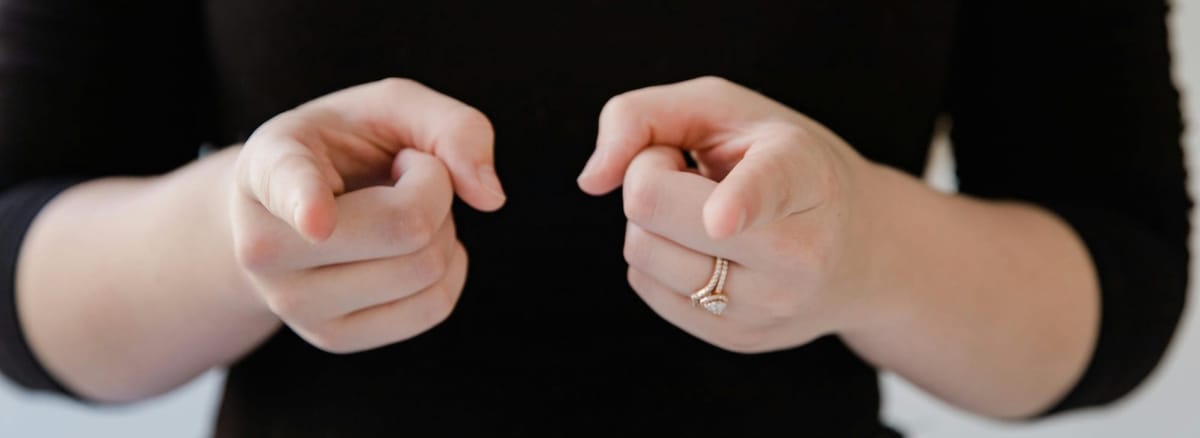Three Ways to Intentionally Build Trust
Building trust is an active behavior. Here are three ways to intentionally build trust in your relationships.

In ongoing relationships, trust can be treated as a feeling that just exists. We expect our partners to trust us, even if we do not do anything to actively maintain trust.
If you have worked with me in the past, you know I have a specific understanding of trust. I teach that trust requires two components: 1. Predictable behavior and 2. That the predictable behavior creates a desired feeling.
For example, when you can predict that your partner will not flirt with your mortal enemy in front of you, and they do not, this gives you the desired feeling of security.
You might be scratching your head about my approach to trust, and I understand. Let me know if you have any questions; however, I want to turn towards my point. Again, building trust is an active series of behaviors that establish predictable behavior and understanding desired emotions. If you are interested in building trust in your relationships, try to intentionally enact the following:
- Say what you are going to do and then do what you said you were going to do.
The action of saying what you are going to do demonstrates intention: "I will go to the grocery store to get food for dinner," which helps to create a shared understanding of expectations. Then, uphold those shared expectations by actually going to the grocery store and getting food for dinner.
Do this with small things and big things. Saying what you are going to do and then doing it for mundane things is great practice for when there is something bigger at stake.
An added bonus here is that you learn about self-accountability. If you tend to not say what you are going to do because you lean toward acting willy-nilly and don't understand why trust is hard to come by in your relationships, saying what you are going to do creates an understanding of shared responsibility you might be willing to uphold. - Work to be predictable in uncertain situations.
Whereas saying what you are going to do and then doing it is something you can do at any time, this trust building behavior occurs when you are unable to communicate about what you are going to do.
For example, maybe in the past all of you let your partner know that all of your first dates are coffee dates and then you work to reconnect with your partner after. If you have an experience when you are going on a first date and cannot say what you are going to do, do what you have done in the past. Work to be predictable where there might be unpredictability.
Now, this is not always practical. That is why it is framed as "work to be." The more you can establish that you behave in a way that tracks, the more you are able to build trust overtime. - Understand what your partner wants to feel, and talk about it when you are not able to behave in a way that upholds this desired feeling.
Okay this one has made me some enemies in the past. I am not saying that you are responsible for your partner's feelings and you should only do that makes them happy. Unclench your jaw and hear me out:
Taking the time to know what your partner values, what triggers their sensitivities, and then making an effort to take care of your partner is what I am emphasizing as the behavior here. Will you always be 100% successful? No. Should you expect to never upset your partner? Absolutely not.
You can, however, consider what taking care of your partner emotionally might look like, and have that inform your behavior. If you are able to care for your partner when they are not there to care for themselves, that is an incredible trust building behavior. - Bonus: Learn to be with your partner when you have broken their trust, but have some boundaries about emotion regulation.
You are going to have moments when you cannot be predictable or when you do not create the feelings your partner desires. During these times, show up for them. Listen to them, and apologize, if necessary (you might not have done anything worth apologizing for, however). Seeing your partner through their hard emotions and just being with them builds trust.
The second part here is really important: sometimes you need to set boundaries around emotion regulation. Just because you might have broken trust, does not mean that you should be punching bag. They might need to emote, but it is up to you to understand the difference between being with someone through a hard feeling and letting them punish you. This is a nuance you learn over time, so don't be hard on yourself, or your partner, if you have to navigate it in real time.
Note that this is not an academic article. Instead, these are lessons I learned working with people and seeing trust play out in real life. I am not saying any of my ideas here are fact, but I do encourage you to give the behaviors a try and see what it does to the experience of trust in your relationships.
You might even gain bonus points by telling your partner(s), "Trust is really important to me, and I am going to start doing these behaviors that I think will actively build it. Can we talk about the behaviors sometimes and discuss what is working and what isn't?" Meta communication can really set you up for success in trust building (because it is...predictable!).
As noted, let me know if you have any questions!
In curiosity,
Dr. S. Kay Webb


